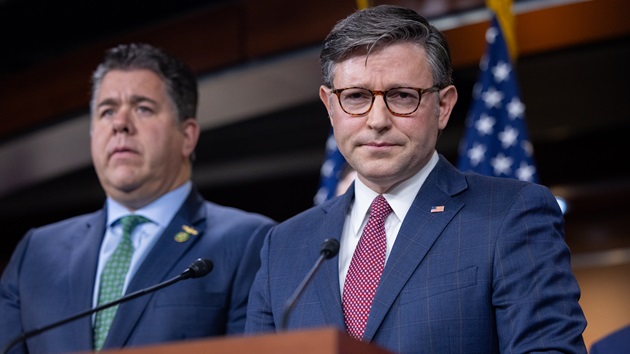New government reports on long COVID lay out existing help, what more should be done
Written by luck on August 3, 2022

(WASHINGTON) — The federal government took an initial step forward in its response to long COVID-19 Wednesday, releasing two reports that compile what federally-funded services are available to people already suffering from the condition, and what research efforts are still needed to better understand how to address it.
“These are initial reports. They’re a significant step, but they’re one step,” said Dr. Rachel Levine, the U.S. assistant secretary for health for the U.S. Department of Health and Human Services, in an interview with ABC News.
“And the work begins tomorrow, as we work on the implementation of the recommendations to the report moving forward,” Levine said.
The reports stemmed from a presidential memorandum issued by President Joe Biden in April, which created an interagency task force on long COVID headed up by HHS Secretary Xavier Becerra and Levine, who will now oversee a new office specifically focused on long COVID at the department.
The HHS Office of Long COVID Research and Practice “will be charged with the implementation” of both plans produced by HHS and updating both regularly — but doing so will hinge on funding for staff and operations in the next annual budget.
To start, it’s not yet clear how common long COVID is. Estimates of how many people experience long-term symptoms after a COVID-19 infection vary between 5% and 30% of people, while a recent large study by the Centers for Disease Control and Prevention found that age might be a factor.
One in five adults under 65 has a health condition related to a previous COVID infection, while one in four people over 65 does, the CDC study found. Women, too, might be disproportionately affected.
A lack of data on who these people are — from race and ethnicity to gender — also leaves gaps in how equitable the U.S. response is.
“While racial disparities in Long COVID are relatively unexplored, it is well understood that some racial and ethnic minority communities are disproportionately impacted by COVID-19,” the HHS report published Wednesday said.
Only 65% of over 61 million COVID cases reported by early 2022 included race and ethnicity data, according to the report.
Addressing who has long COVID and whether everyone is equitably getting both the treatment and the government-supported services to help them, like disability benefits, is a large focus of the report.
“We want the parent who lost their job to know that there is income and job assistance available. We want health care providers to know that technical guidelines and resources can help them do their job and that research is on-going to continue to improve their ability to treat and care for their patients. Simply put we want to assist the American public in addressing the longer-terms effects of COVID-19,” HHS spokesperson Tara Broido told ABC News.
There are 200 services for people with long COVID listed in the report, including technical guidelines for health care providers working with long COVID patients.
“We’re going to figure out what the gaps are and where we need additional resources,” Levine said.
And while there are already studies underway across the government, including at the National Institutes of Health, the CDC and the Department of Veterans Affairs, the HHS reports on long COVID call for faster research and implementation.
“The current lag in research being translated into practice is simply not acceptable in the current environment,” the report finds.
“We must aggressively innovate how we do research and accelerate the pace of research to meet the challenge of the moment. … We need to rethink how we disseminate research and translate findings into practical solutions more quickly.”
Levine called the two reports, and specifically the research plan, a “living document” that should serve as “guideposts for government action.”
“This is an initial step in a long term project. So I think it will help people, but then it’s going to inform how we move forward to help people over the long term,” Levine said.
Copyright © 2022, ABC Audio. All rights reserved.




